8+ Sample Annual Business Plans
-
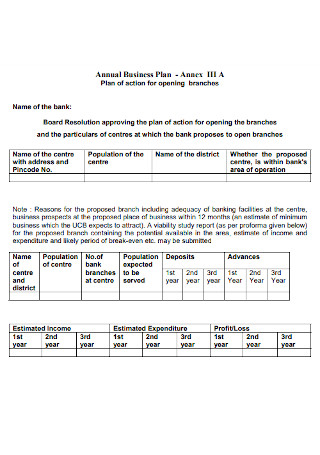
Annual Business Branches Plan
download now -
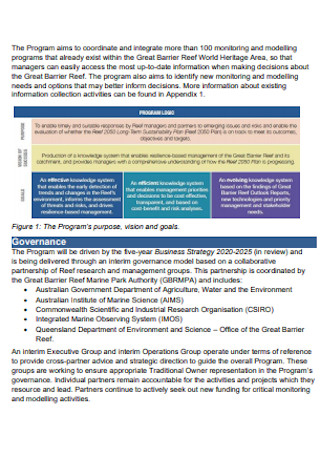
Annual Business Program Plan
download now -

Annual Business Plan of Friends
download now -
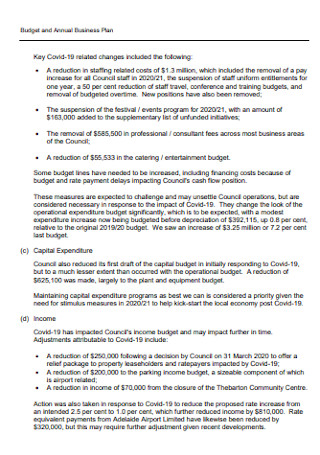
Budget and Annual Business Plan
download now -
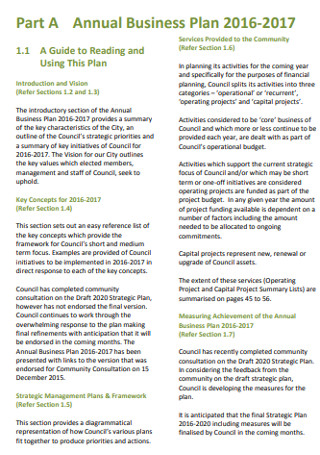
Sample Annual Business Plan
download now -
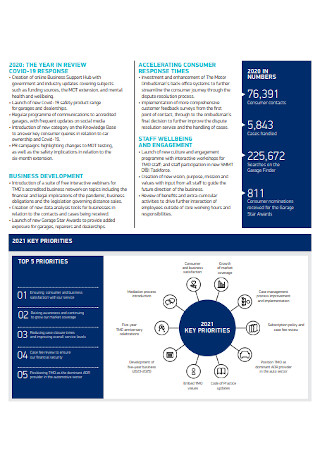
Annual Business Report and Plan
download now -
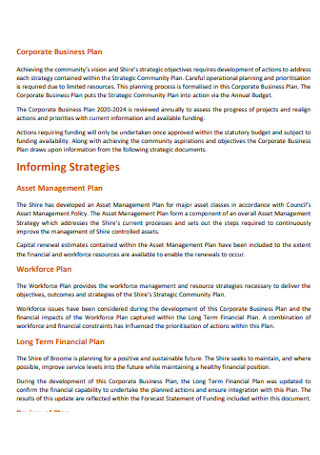
Corporate Annual Business Plan
download now -
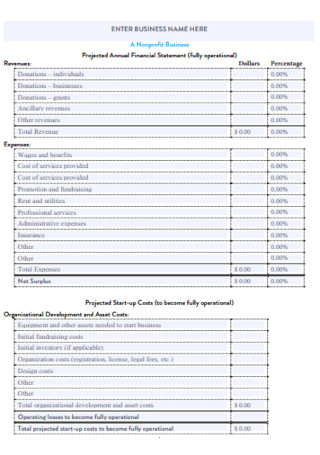
Annual Nonprofit Business Plan
download now -
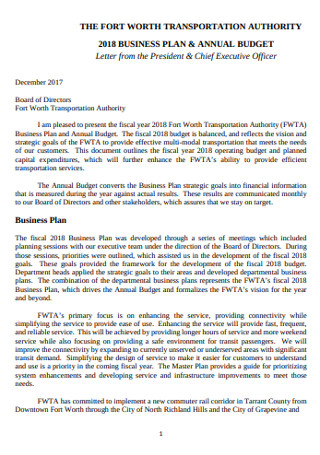
Annual Business Budget Plan
download now
FREE Annual Business Plan s to Download
8+ Sample Annual Business Plans
What is an Annual Business Plan?
Different Types of Business Plan
Benefits of Using an Annual Business Plan
Basic Elements of an Annual Business Plan
How to Create an Annual Business Plan
FAQs
Why do we need strategic planning?
What are the key elements in an annual business plan that should be included?
What are the different types of business plans?
What are the fundamental purposes of a business plan?
What is the difference
What is an Annual Business Plan?
An annual business plan is a clear and organized roadmap that illustrates how a specific business firm develops a concise strategic plan for the upcoming year. This plan is an effective management tool with the aim of facilitating the growth, development, and performance of a new or already existing business through prioritizing the energy, resources, and time of all the people in the organization to stay focused in the same direction.
According to a study conducted in the USA, setting up an effective business plan doubles the chances of success of the business. Every month about 543,000 new businesses start, but in the first two years only seven out of 10 are still in business, whereas after five years 5 out of 10 are still around. This means that there are about 70% of the businesses that manage to survive for 5 years as they follow a strategic business plan.
Thus, all kinds of CEOs, business executives, project managers, product developers, and other key individuals in a particular business firm must effectively create a compelling and realistic annual business plan every year for the smooth development and growth of their business activities and projects.
Different Types of Business Plan
The book Writing a Business Plan: A Practical Guide explains that a business plan provides a fixed set of criteria against which you test every decision in the business to help you get a firm control of your business. So, you need to work on your business plan continually and share it with the key individuals of your business. Keep in mind that you are constructing a plan for the lifespan of your company, preventing you from making mistakes that will cost you enormous amounts of money. Here we will explain to you about the different types of business plan below:
1. Start-Up Business Plan
Are you planning to establish a new business? David Karp, Tumblr founder and CEO, said: “An entrepreneur is someone who has a vision for something and a want to create.” Before you start running your business, we highly recommend that you write a start-up business plan that contains basic information of your new business firm, the specific products or services you will provide, market analyses, preferred management team, etc. If you have a clear vision for something and a strong determination to create, then you will need this document that must be presented to prospective investors.
2. Operational Business Plan
Describe the day-to-day activities, processes, and methods required to keep the operations of the business firm. This type of business plan is also known as a single use plan or ongoing plan. A single use plan is written for activities and events with a single occurrence in the company like a single marketing campaign. On the other hand, an ongoing plan provides policies to solve issues, rules for specific procedures and regulations intended for a step-by-step process in fulfilling certain objectives.
3. Strategic Business Plan
“A strategy is not permanent. It’s like water, it will keep changing itself as the obstacles come,” said Pooja Agnihotri, the author of 17 Reasons Why Businesses Fail: Unscrew Yourself From Business Failure. Making a strategic plan requires having a professional overview of the overall state of the business. This type of business plan appears to be the foundational basis of a company which will impose long-term decisions. It provides the visions, mission and values of an organization from the next two years to the next decade.
4. Tactical Business Plan
Erik Pevernagie said: “If we learn to reflect on a paramount strategy and recognize the proper tactics, we may come to find out how we can rule the stormy waves of our lives since action and reflection have to unite in braving the tortuous windings and turnings of the paths ahead.” This type of business plan actually supports your strategic plan as it comprises tactics that your business firm plans to utilize to accomplish what is written in the strategic plan. It asks certain questions about what must happen to reach a strategic goal.
5. Contingency Business Plan
If something strange and unexpected occurs or if there is something that must be altered, a contingency plan is a special business plan which is useful in certain situations that call for a change. This is important during unforeseen circumstances. For instance, the sudden COVID-19 pandemic that is still happening since 2020 is an unusual event that immensely affects many businesses and companies worldwide. According to a survey about the economic impact of COVID-19 on small businesses, they found that 43% of businesses were temporarily closed and that employment had fallen by 40%.
Being an entrepreneur, you are someone who has a definite vision for how to bring value and impact to various customers. Many successful business entrepreneurs are hard-working, dedicated, motivated, and resilient in their work. Do you want to construct something that is worth a lot of money while maximizing your personal fulfillment? To fully strengthen your motivation and effort in managing your business, know more about the benefits of using an annual business plan:
You will be able to focus on the essential areas where you think it’s integral to focus for the year with the use of an annual business plan. Also, you can aim your attention to your priorities in the company such as the growth, development, sales, expansion, and financial status. So, develop your mission and vision into the paper through effective planning every year.
Through a comprehensive business plan, business executives and managers are able to pinpoint the strengths and weaknesses. In turn, this will help them mitigate the weaknesses by further enforcing the strengths to be their success factor. Based on an article, the writer revealed that using a business plan doubled the organizational success ratio.
It is very crucial that you clarify on the roles and responsibilities of the people inside your business firm or organization. Using an annual business plan will assist you in communicating and delegating the important tasks and processes that must be done to the suitable person depending on the demands of the business projects and the capabilities of the person. Plus, it can help you monitor and manage new business developments which can be beneficial when your business needs to have necessary adjustments.
“We may not always know why we do the things we do, or take the paths we take. But if we are open to believing that these paths have a purpose and will get us to a specific goal, then our choices can never be wrong,” Sandra Cooze said. Thus, writing a structured business plan will deeply motivate you to achieve your business goals more effectively and believe in your vision that you will succeed in your business.
In this section, you will learn how to construct an exceptionally-written and comprehensive annual business plan. However, an annual business plan has different elements. Include the following elements for you to create a profound piece of writing:
While creating a business plan for the new year, it needs to be systematic that will give you the framework to map out the important activities, strategies, marketing and sales plans, and other aspects for the upcoming year. Below are some easy-to-follow tips that indicate how to create a clear and systematic annual business plan for your company:
Art Weinstein, the author of Handbook of Market Segmentation, said: “Companies need to be superb segmenters to survive and thrive in fast-changing and increasingly hypercompetitive markets. Having superior quality goods or services are no longer sufficient as companies need to satisfy discriminating customers who can select from a multitude of product offerings in a global marketplace. Today’s marketers must aggressively attack target markets that exhibit unique needs and wants.” So, take your time to conduct research and make a thorough analysis of your target market.
What are the essential steps you need to do to accomplish your goals? Which initiatives are most urgent? How will you measure your progress and determine whether you reached your goals? Specify solid goals and measurable objectives to help you fulfill your long-term business goals and initiatives. Evaluate the anticipated long-term results and shorter routes to fulfill business goals.
Strategic positioning is an excellent method to facilitate insight of how business firms and organizations wield and concede power in their respective fields in the industry. You need to determine the strategic position of your business to help you in figuring out where your business needs to go and how it will get to its destination that you want. Discuss with the business executives, project managers, product developers, brand strategist, and marketers of your company to distinguish key strategic matters, as well as gather data about customer insights and target market.
Based on the book Strategic Planning: A Practical Guide to Strategy Formulation and Execution, using a strategic plan allows you to take internally and externally focused information into consideration when formulating a decision, and in turn, maxime certainty, decrease risk, and optimize results and outcomes. Thus, develop an effective strategic plan for your business every year. In this process, it will let you determine where to focus and review the progress of your company, as well as supporting the accomplishment of goals, vision and mission.
Carefully review your entire business plan for the year and make sure to fully include all the important points in your plan. If you notice that you overlook some sections that require additional points, we suggest making some edits and revisions in the document. After the revision, you can now finally execute the business development and strategic plan for the year.
As a strategic plan evidently shows a direction for your business to take, it will help it enhance its focus in order to get there. Thus, strategic planning can really help your business or organization in developing the proper goals and targets. Plus, it helps everyone to concentrate their hard work and efforts into fulfilling them.
The key elements that should be included in an annual business plan are overview, objectives, deliverable outcomes, target audience, sample plan, research methods, timeline, and budget.
The different types of business plans are short plans, working plans, presentation plans or decks, and what-if plans.
First, a business plan plays a significant role in creating effective strategy for growth and improvement. Second, it clearly figures out the future financial needs of an entrepreneur. Lastly, it attracts investors like angel investors, and lenders.
A business plan is developed with the aim of supporting the overall growth and development of a certain business firm or organization. It contains the definite business goals and objectives, strategies, financial plans, description of the products and services, operations, and many others. On the contrary, a marketing plan provides details about the marketing and selling of products and services of a company.
Therefore, writing an annual business plan will definitely help you in elevating some aspects of your business and take it to the next level. Indeed, a solid and reliable plan will kick-start that process. Also, you need to have patience and perseverance in striving to implement the ideas and plans you like for your company. To assist you in your journey in achieving a breakthrough through design and planning, you can learn and apply the tips aforementioned here. Plus, we have included several business plan samples that you can download. To conclude this article, be inspired by Robert Kiyosaki’s words: “Don’t let the fear of losing be greater than the excitement of winning.”
Benefits of Using an Annual Business Plan
1. Establish Priorities and Maintain Focus
2. Improves Organizational Success Ratio
3. Clear Communication and Delegation
4. Better Goal Achievement
Basic Elements of an Annual Business Plan
How to Create an Annual Business Plan
Step 1: Research and Analyze the Target Market
Step 2: Specify Business Goals and Objectives
Step 3: Determine the Strategic Position
Step 4: Develop an Effective Strategic Plan
Step 5: Review and Execute the Strategic Plan
FAQs
Why do we need strategic planning?
What are the key elements in an annual business plan that should be included?
What are the different types of business plans?
What are the fundamental purposes of a business plan?
What is the difference between a business plan and a marketing plan?
